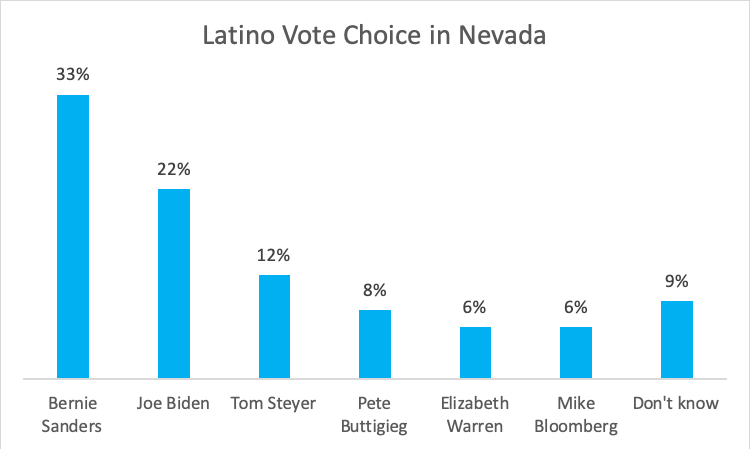By Pilar Marrero – [email protected] | 2011-12-8
Full Results From December Poll Posted Here
LOS ANGELES, CA. – Because of the conservative philosophy of Latinos in the U.S. regarding family and religion, in the 1980s, Ronald Reagan said: “Hispanics are Republicans. They just don’t know it yet.” Today’s Republicans are still repeating this as if it were a sacrament. Nevertheless, a new poll of Latino voters by impreMedia and Latino Decisions revealed that when it comes to voting, the majority (53%) of these citizens said their own religion does not have much influence on which candidate they choose, while 40% said it does.
Although the numbers appear balanced, they become clearer when broken down: Only 23% said their religion has a “big impact,” while 17% said the candidate’s religion has a “small” impact. The only exception is among Latinos who are part of the GOP, since 47% said their religion does have a big impact on their election choices.
“It’s always been said that Latinos have a conflict between their religion and their political tendencies. That they’re usually more progressive on economic policy but conservative on social issues,” said Matt Barreto, a professor at the University of Washington in Seattle and advisor to Latino Decisions.
However, Barreto said the poll reflects no such conflict: “Religion and social and moral values are not among their priorities when they make their political and election calculations.”
The poll confirmed that Latino voters place little or no importance on traditional moral issues when voting: 75% think the economy, jobs and taxes are much more important in politics. Only 14% said moral or social issues such as abortion, same-sex marriage or family values are more important.
Ironically, this is true for many categories of Latino voters, including Democrats, Republicans and independents; U.S. born and naturalized citizens; various socioeconomic levels; those who attend church weekly and those who are “born again.” Economic issues rule.
On the other hand, there are moral issues on which Latinos agree, and which can incidentally have an impact on their political stance—and immigration is one of them. “In this poll, there’s a clear moral attitude of support regarding churches and religious leaders helping undocumented immigrants even if it’s in conflict with the law,” said Ricardo Ramírez, a political scientist at the University of Notre Dame. “For them, helping the undocumented is a moral issue and could even be a religious one.”
A majority (66%) of Latino voters think churches should support the undocumented even if it challenges laws, and only 21% think they should not help them. Naturalized Latino citizens tend to have stronger positions on this: 75% said the church should help. Among U.S. born Latinos, this support is lower, at 58%. But even 66% of Republican Latinos and 66% of independents have this opinion. In general, these voters tend to want their churches and election politics to remain very separate: overwhelming majorities of these voters think no religious leader, minister or rabbi should tell them which candidate to vote for.
The President’s Religion and Mormons
When asked about the religions of President Obama and one of his main Republican rivals, Mitt Romney, many of these voters had no idea which religion either one of them belongs to: 48% said they did not know the president’s religion and 58% said the same about Romney. “At this point, Latinos don’t seem to be very interested in the religion of these candidates,” said Barreto.
Interestingly, 12% of Latinos said Obama is a Muslim, and only 25% correctly said Romney is a Mormon or belongs to the Church of Jesus Christ of Latter-day Saints. Something else the poll revealed is that Latino voters have a very vague idea of what Mormonism is. This issue will probably be relevant during the general election if Romney is the GOP’s candidate, although this is yet to be determined. Of respondents, 58% are not familiar with Mormonism, 13% are very familiar and 27% are somewhat familiar. About 40% said, incorrectly, that Mormonism is not a Christian religion and only 31% said that it is—while 27% said they do not know.
Although religion does not seem to have a positive effect on Latinos’ vote, it is not clear whether it might have a negative effect on Latino Republican or independent voters.
“Apparently, Mormonism is not defined in the minds of these voters. This could be good or bad for the Republican candidate if it’s Romney, because this issue will surely come up in the race,” said Michael Jones-Correa, a professor of government at Cornell University. “If there’s more definition of what the Mormon religion is, it could be more beneficial or detrimental for Romney; it depends.”


